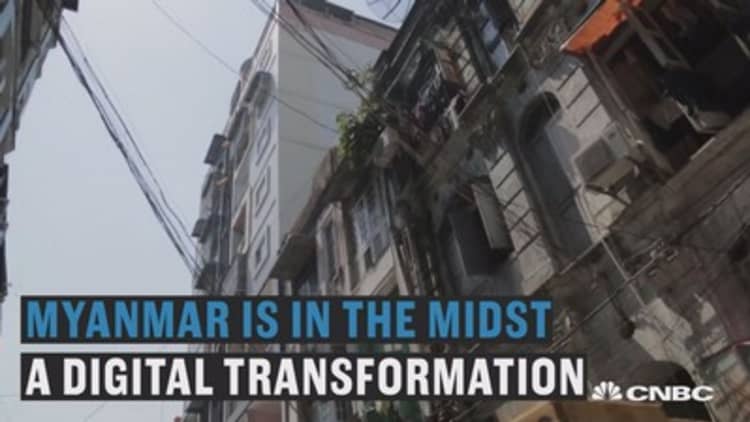Times are tough for nonproliferation advocates. As North Korea shows off its weapons arsenal, a global arms reduction and eventual disarmament — the two goals behind the decades-old Nuclear Nonproliferation Treaty — appear increasingly unlikely.
Nuclear-armed states demonstrated little to no progress on force reductions last year, according to U.S. think tank Arms Control Association, and some of the world's biggest economies have boycotted UN negotiations on a weapons ban.
Despite the gloomy prospects, one Southeast Asian country offers a valuable success story.
Just like North Korea, Myanmar was once a pariah state with nuclear ambitions, bogged down by international sanctions But the Buddhist-majority nation has since changed tune and become a role model for non-proliferation, offering key insights into nuclear policy, as outlined in a new report.
"Nonproliferation failures, like bad news, usually dominate the headlines and too often overshadow successes. Myanmar has been a success and offers a number of important lessons for nonproliferation more generally," said David Santoro, director and senior fellow of nuclear policy at Pacific Forum CSIS, in a paper released by the Australian Strategic Policy Institute.
Myanmar's story
From the early 2000s to 2011, Myanmar's nuclear ambition were worrisome for the international community.
As talks with Russia to build a nuclear research center and reactor came to an unsuccessful end in 2003, Naypyidaw turned to Pyongyang for assistance and the appearance of North Korean freighters with secret cargoes in Myanmar suggested the movement of arms and military equipment, Santoro said.
"The late 2000s witnessed a sharp increase in allegations about ongoing nuclear-weapon work in Myanmar. While the evidence was not always clear, international concerns grew because it became obvious that something was going on. The fear was that Myanmar would become the next big proliferator."

At the time, Myanmar was ruled by a military junta known as the State Peace and Development Council (SPDC), who drew global criticism for its repressive political and human rights policies. The faction systematically denied the existence of nuclear-weapon-related work, which further fueled international suspicions, Santoro noted.
Following the SPDC's dissolution in in 2011, a civilian government helmed by President Thein Sein from the military-backed Union Solidarity and Development Party took over and implemented democratic reforms to advance economic development — a move that eventually resulted in the lifting of U.S. sanctions and paved the way for the first free election in twenty-five years.
Under Sein's rule, Naypyidaw abandoned its nuclear research program, embraced nonproliferation, and promised to roll back dealings with Pyongyang, Santoro explained. Sein's administration took concrete action to support these claims, including signing agreements with the International Atomic Energy Agency, Santoro noted.
"The nonproliferation U-turn needs to be understood as part of the broader reform agenda, which began when the military decided to open up their country to the world," he explained. "A key motivation behind these reforms was to reach out to the U.S, and because Washington made nonproliferation endorsement a non-negotiable condition of its engagement, Naypyidaw delivered."
Myanmar is now a hotspot for foreign direct investment, home to American fast-food outlets and its own stock exchange.
Three key lessons
While the country still has more to do on nonproliferation, its experience offers three key insights for nonproliferation lobbyists.
"The U.S. and the rest of the West still have considerable leverage over countries interested in integrating into the global economy and that they can, and should, use that leverage to score points on nonproliferation," Santoro recommended.
Secondly, nonproliferation must remain a requirement for states seeking global engagement and finally, nonproliferation promoters must maintain a long-term time frame and offer "deep and sustained engagement" with the state over an extended period, Santoro said.

